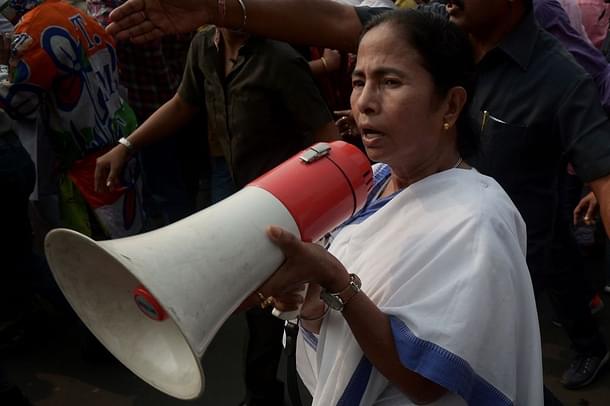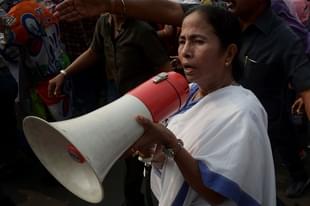Politics
Dhulagarh: The FIR, And The Media’s Silence On It, Are Very Very Dangerous Precedents
Shoumendu Mukherji
Jan 03, 2017, 05:40 PM | Updated 05:40 PM IST
Save & read from anywhere!
Bookmark stories for easy access on any device or the Swarajya app.


Federal Democratic Republic of Ethiopia: In March 2016, Solomon Kebede, managing editor of the local newspaper “Ye Muslimoch Guday” was convicted after being jailed for three years on terrorism charges. On 21st December, two radio journalists Khalid Mohammed and Darsema Sori met a similar fate.
Turkey: As per research conducted by the “Committee to Protect Journalists”, as on 1st December 2016, Turkey was the worst jailer of journalists worldwide, having imprisoned 81 reporters, editors and columnists in one year alone on charges of anti-state activities.
Pakistan: Cyril Almeida, a leading columnist of the country’s oldest newspaper Dawn was put on the “Exit Control List” and barred from leaving the country in October for having published a news report that contradicted the Pakistan Army’s claims and legitimized India’s surgical strikes.
These three examples reflect the tyrannical tendencies of democratic governments around the globe who have found it suitable to silence disconcerting media persons rather than answering their uncomfortable questions. Last year, an exasperated chief minister thought it convenient to frighten a young journalist and her cameraman, who had exposed her double speak and hypocrisy. This is however not the first time Mamata Banerjee had lost her cool to disquieting questions from the youth. In the early days of her tenure, she had walked off a live televised interview refusing to answer a pertinent question put forth by a Presidency University student regarding her indisciplined ministers. The student in return was branded as a Maoist.
Turn to December 2016, a FIR has been filed against a national news agency accusing its editor along with the 25-year old reporter and her cameraman under Section 153A of the Indian Penal Code, under the charges of instigating enmity between religious groups.
In a communally charged sequence of events, where the Hindu population fearing for their lives, fled; their houses looted and burnt by the violent mob in Dhulagarh (district Howrah), a mere 30 kms from the state capital Kolkata, it is preposterous that a news agency has been accused of “instigating” these riots through their reportage. What is lamentable is that for almost a week after the carnage, there was not even a whisper of it in the mainstream media. The local Bengali media stayed mum. Even when the chief minister was asked fifteen days later, she got furious, saying journalists should be “ashamed for this” since “nothing had happened (in Dhulagarh)”.
Martin Luther King Jr. in 1967 had famously said "In the end, we will remember not the words of our enemies, but the silence of our friends”. The silence of the otherwise emphatic fourth estate which proclaims itself as the common public’s all-weather friend and which is regularly critical of any government, is a death knell to our nation’s democratic ideals. Not showing to the public the images that are embarrassing to the government, is regressive, especially in these times when the Hon’ble Supreme Court of India has itself championed the cause of such liberty of thought and expression in Shreya Singhal v Union of India. The “reasonable restriction” argument under Article 19(2) of the Constitution also does not hold weight in absence of a “law” having statutory force, which cannot be a mere department or executive instruction of the State Government.
There is thus no legal mandate that could have stopped the media from either visiting or covering the situation on ground at Dhulagarh, and expressing their freedom of expression under Article 19(1) (a). The state government being at a loss of constitutionally acceptable legal options, thus chose to send the police force after the young 25-year old journalist.
Since 1992, 27 journalists have been killed in India. Between 2011 and 2015, one was burned to death, another shot by the Police. In our neighbourhood Bangladesh, in Dhaka, blogger Avijit Roy was hacked to death. We surely do not want to turn into a nation similar to Ethiopia or Pakistan where journalists must fear for their life or fear being put behind bars solely for having looked the government in the eye. In such countries the principles of democracy is very fickle and loose. Turkey imprisoned its journalists in the aftermath of a failed coup attempt. Did West Bengal face any such condition precedent to justify this abhorrent State action?
A FIR might well be a start that can become a dangerous precedent in the future. What is strange is that the reaction of media associations and contemporaries, who a couple of months back vehemently opposed the suspension of a news channel’s broadcast for a day. Their reaction this time around has been peculiarly muted. No protests, no court petition and no editorial columns admonishing the government authorities. Stake-holders may well have taken sides, siding with their like-minded friends but is everything worth looking at through only the prism of electoral benefits and solution-less opinion mongering? It is sad to witness that even media houses do not stick together and sympathize at this hour of crisis. Guess, rationality and free thinking comes at a price these days.





